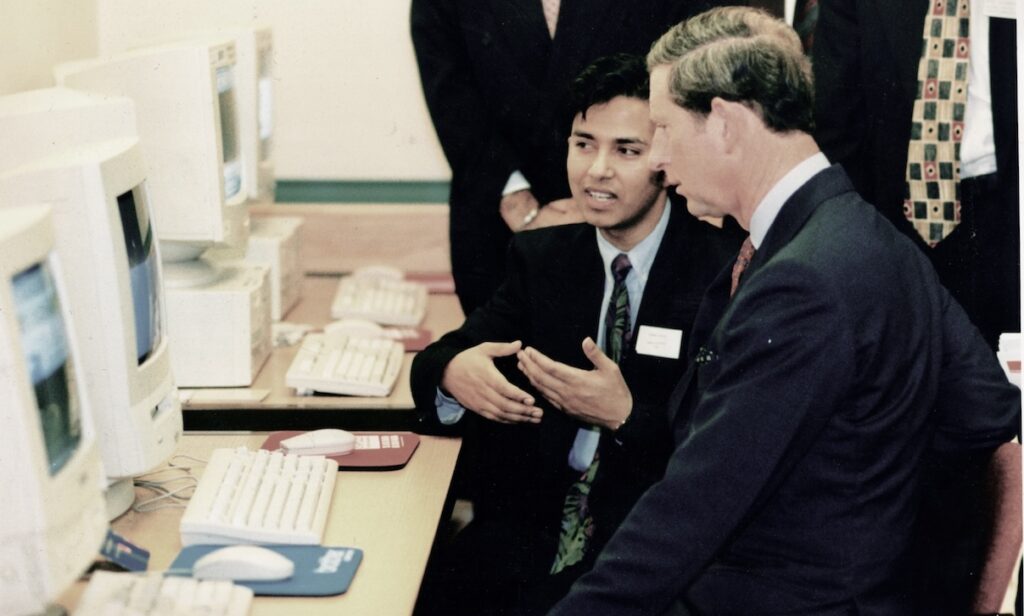
Back in 1995, when most people had barely heard of the internet, I was opening West Yorkshire’s first cybercafe. That early bet on digital connectivity shaped everything that followed—from managing multi-million pound projects for household names to helping communities bridge the digital divide.
Founded in 1995—before Google reshaped search and before the rise of giants like YouTube, Facebook, and Twitter.
The Beginning: Planet Connect Internet CyberCafe
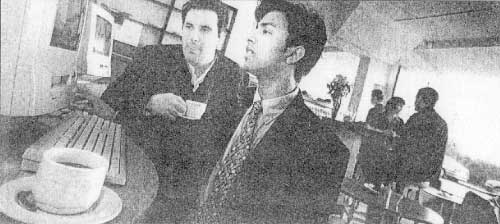
The concept started over coffee with a friend in 1995—what if we created a space where anyone could access this thing called the World Wide Web? Leeds had nothing like it. Working in partnership with Leeds City Council’s ambitious 24-hour City initiative, we launched Planet Connect, bringing the internet to ordinary people for the first time.
The official opening was quite something. Councillor John Trickett (now MP for South Elmsall) cut the ribbon alongside other dignitaries, with BBC1’s 1 o’clock news broadcasting live and the Yorkshire Post covering the story. What started as an idea became a team of web designers, sales staff, and cafe workers—a proper business serving a community hungry for digital connection.
Scaling Up: Bradford and Royal Recognition
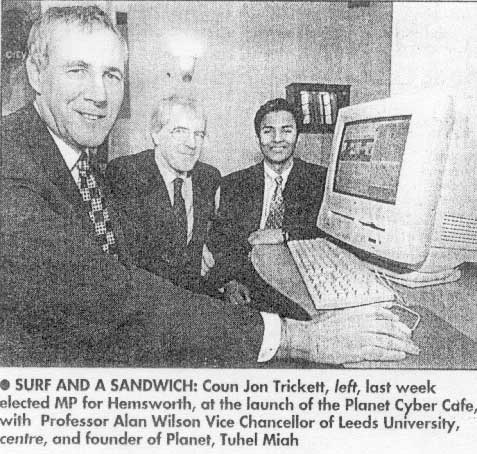
Success in Leeds led to expansion. Our Bradford location achieved something extraordinary—an official opening by HRH Prince Charles (now King Charles III). The press coverage was incredible, with rave reviews across local and national papers, plus TV and radio interviews that positioned us as genuine innovators in the digital space.
But this wasn’t just about the glamour. Working with Bradford Council, Bradford TEC, Business Link, Manningham Housing, and MCB University Press, we provided essential digital services to underserved communities. We delivered tailored training programmes for people who’d never touched a computer, helped local businesses get online, and supported educational institutions in embracing new technology.
The business thrived until FreeServe’s launch changed everything. Free dialup connections nationwide marked the end of the cybercafe era—but also opened new opportunities.
Corporate Success: Managing Blue Chip Digital Projects
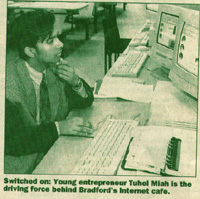
As a Multimedia Project Manager, I transitioned to working with major brands, overseeing a team of 12 designers, coders, and developers. The scale was different, but the core principle remained: delivering digital solutions that actually work for real people.
My client roster included household names: Virgin Holidays, Johansens, Chez Nous, GolfHotels, G&A Silver, Jeld-Wen, Superstat, EuroCamp, Interface Fabrics, and Frialator.
Managing projects worth several million pounds meant constant juggling—preparing technical briefs, presenting to C-suite executives, liaising between creative teams and demanding clients, ensuring SEO optimization, and maintaining quality control across every deliverable. The pressure was intense, but so was the satisfaction of seeing major brands transform their digital presence.
A Decade in Further Education: Making Digital Skills Accessible
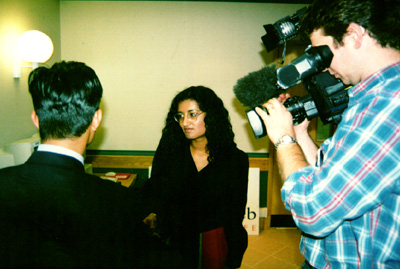
My experience bridging the digital divide expanded significantly through a decade of work in the Further Education sector, where I discovered that the biggest challenge wasn’t the technology—it was helping people believe they could master it.
My decade in Further Education combined large-scale project management with grassroots community development. As Project Co-ordinator for a £2 million European Social Fund initiative, I managed 24+ partners across Yorkshire & Humber to deliver ITQ Level 1 training to over 2000 employees and engage 400+ SME organizations. Beyond the financial compliance and monthly reporting, the real satisfaction came from seeing a warehouse worker in Hull complete their first spreadsheet or helping a family business in Barnsley finally embrace email.
Working as Community Development Officer at Joseph Priestley College taught me that the best education happens when you identify what communities actually need rather than what you think they should want. The role demanded equal parts strategic thinking and grassroots engagement—understanding policy frameworks while never losing sight of the individual stories behind the statistics.
The Bigger Picture
Twenty-eight years of internet evolution have taught me that technology alone isn’t enough—it’s about understanding how people actually use it. Whether explaining email to a pensioner in Bradford or presenting web strategy to Virgin’s executive team, success comes from translating complex possibilities into practical solutions.
I continue writing about technology, social media, SEO, Apple, digital media, and food because these aren’t separate interests—they’re all parts of how we live and work in a connected world. My approach has always been hands-on: trying new platforms, experimenting with emerging tech, and learning from both spectacular successes and expensive failures.
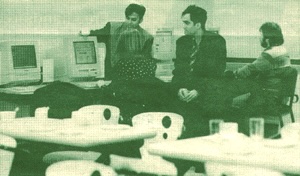
As Darcus Howe wrote in the New Statesman,
I’m “fiercely ambitious“— but that ambition has always been about more than personal success. It’s about spotting change before others do, whether that was internet access in 1995 or whatever’s coming next.
Giving Back: Charity and Community Leadership
My commitment to community development extends far beyond professional work. For many years, I served as a School Governor, helping shape educational policy at the grassroots level. As a mosque Trustee and Secretary, plus board member of several community organizations, I’ve learned that sustainable change happens when you empower communities to lead their own transformation.
The past seven years have been defined by leading an educational charity—work that has become my most fulfilling investment with the greatest return.
Education remains central to everything I do because it’s the most powerful tool for lasting change. Whether helping a warehouse worker master spreadsheets or supporting entire communities to develop digital skills, I’ve seen how the right training at the right time can transform lives. This philosophy drives my ambition to expand into international philanthropy, particularly supporting communities affected by conflict and poverty.
My goal is simple: provide people with the education, skills, and tools they need to sustain themselves and their communities. It’s the same principle that guided those first cybercafes in 1995—technology and opportunity mean nothing unless people have the knowledge and confidence to use them.
Rave Reviews:
King Charles and Tuhel Miah BBC News 1996 | Tuhel in Telegraph & Argus Oct 1996 | Tuhel in Telegraph & Argus Dec 1996 | Tuhel in Telegraph & Argus Jan 1997 | Tuhel in EAST Newspaper | Tuhel in Telegraph & Argus, 24 October 1996 | Tuhel Miah in Yorkshire Evening Post 6th Feb 1996 | Tuhel Miah in Yorkshire Evening Post 5th Feb 1996
